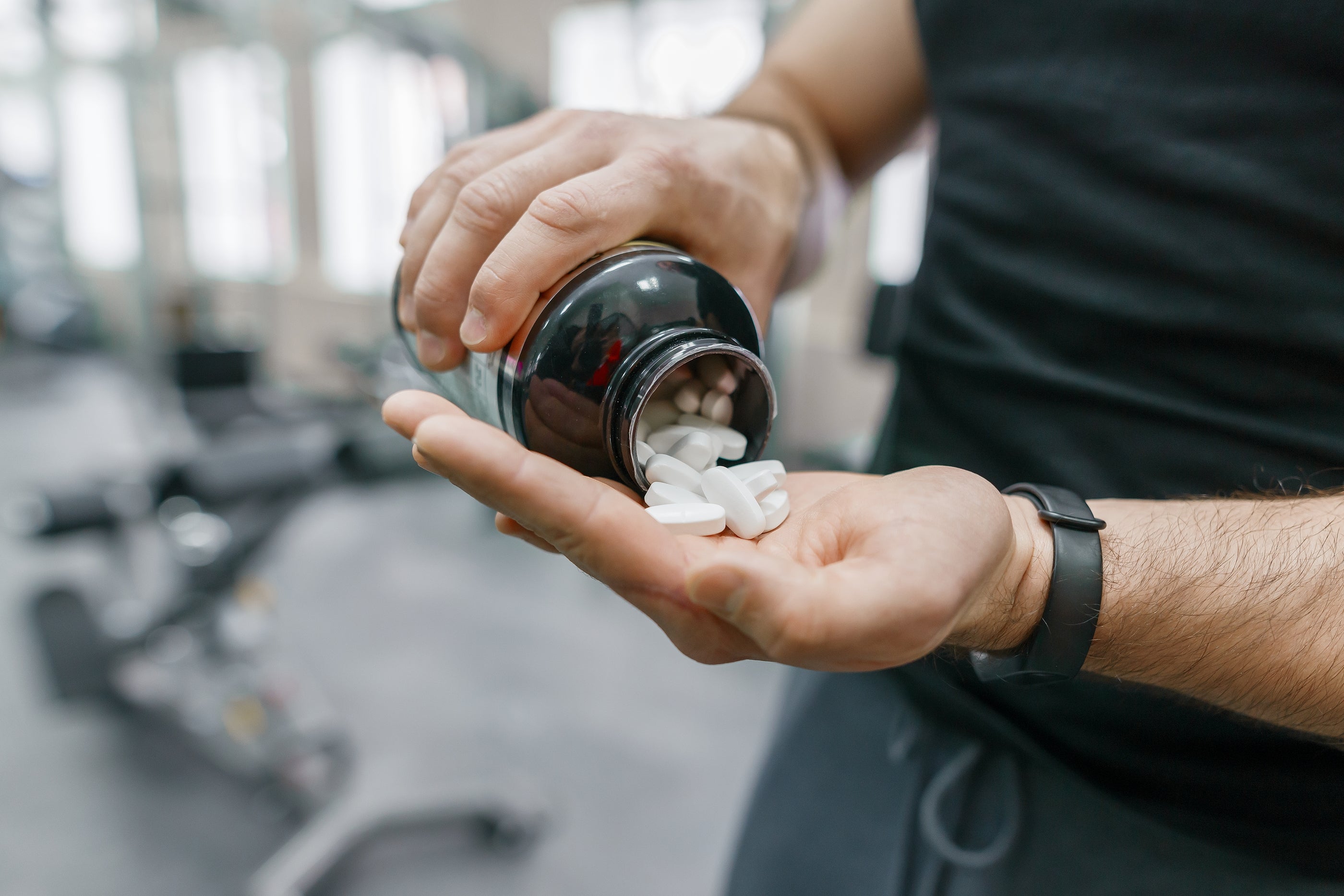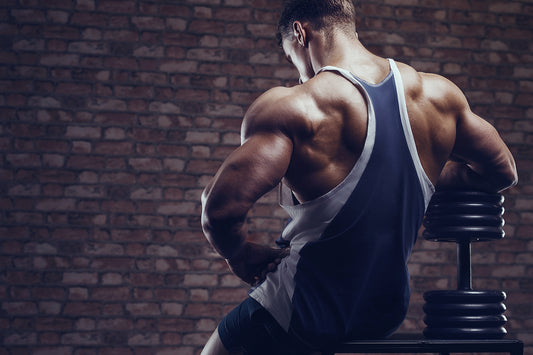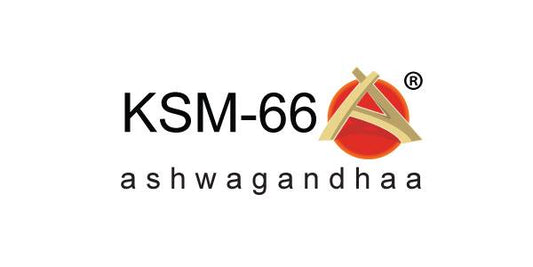When it comes to any type of supplement, only two questions matter:
-
Does it work?
-
Is it safe?
And, okay, the third important question: What does it do?
For testosterone boosters, the third question is answered in the name: testosterone boosters boost testosterone.
Whether or not they work is a separate question altogether. One that requires a bit of personal research and even trial-and-error.
But the problem with the “trial and error” approach when it comes to boosting testosterone is that you’re potentially messing around with your hormones.
And if you’re at all familiar with the functions and importance of hormones, you understand that these aren’t things you want to cavalierly mess around with. It's crucial to get a blood test to monitor testosterone levels and overall health.
Key Point:
Many testosterone boosters don’t work, and many of the few that do work aren’t exactly good for you. Especially the illicit sort of testosterone boosters listed on the “banned substances” list of the World Anti-Doping Agency (WADA).
However, there are some natural testosterone boosters that are not only effective but safe and legal. Many of these natural T-boosters you can combine for comprehensive optimization of your sex hormone pathways.
In this article, we list through some of the best natural, safe, and effective testosterone boosters.
With the bulk of this article covering the best safe and effective testosterone boosting ingredients, let’s first address the ingredients you want to avoid (as well as why you want to avoid them).
Ingredients to Avoid and Potential Side Effects
There are plenty smart, healthy testosterone boosters that do work. And if you take them altogether, they may work even better than they would alone.
However, here, we’re covering those that either don’t work or aren’t safe for boosting testosterone—or they’re flat out illegal to use, if you’re a competitive athlete at least.
Whereas Bulbine natalensis may actually benefit T status, but at the cost of your liver health. This ingredient has been linked to drug-induced liver injury, making it a risky choice for testosterone boosting.
Generally speaking, the most common side effects associated with T-boosters include: broader health risks such as potential liver injury, hormonal effects, and the lack of long, rigorous clinical trials to assess safety.
With that in mind, some ingredients common to T-booster supplements that you should avoid include:
Tribulus Terrestris – easily the most popular herbal T-booster ingredient, Tribulus terrestris is a drastic disappointment compared to all the hype surrounding this botanical. Simply put: Tribulus may help as a sex enhancer, but it doesn’t seem to work as a legitimate testosterone booster. While it may enhance sex drive, it does not address erectile dysfunction effectively. This is like the “caffeine” of T-boosters: it only creates the illusion that a T-boosting formula is working.
DHEA – a natural hormone used by the body to synthesize T, DHEA in dietary form is a different deal; not to mention that it’s a WADA banned substance, and it’s an ineffective WADA banned substance, making DHEA an all-around poor supplement decision.
Bulbine Natalensis – an African herb traditionally used to enhance libido and sex drive, Bulbine natalensis does have androgenic, anabolic, T-boosting properties; yet, this herb has also been deemed unsafe, potentially damaging liver health and function.
Licorice Extract – to be fair, some licorice extracts do present an impressive range of health benefits; however, the problem with licorice is that its bioactive glycyrrhetic acids seem to reliably spike cortisol, a catabolic, T-diminishing stress hormone.
Deer Antler Velvet – causing quite the stir in the NFL years ago, deer antler velvet is sort of an exotic T-booster that supplies IGF-1, an anabolic hormone for enhanced muscle growth and recovery. The IGF-1 content of deer antler velvet explains the controversy around this ingredient; however, there’s one problem: it seems to have no effect on testosterone levels.
The potential side effects of these testosterone boosters may differ from ingredient to ingredient.
For example, licorice’s cortisol spikes are unique to licorice, and they may have a detrimental impact on male sex hormone and anabolic muscle growth.
Whereas Bulbine natalensis may actually benefit T status, but at the cost of your liver health.
Generally speaking, the most common side effects associated with T-boosters include:
-
irritability and mood swings.
-
acne flare-ups.
-
breast tissue enlargement (gynecomastia).
-
impaired liver and kidney function.
Are Testosterone Boosters Bad for Your Liver? Understanding Drug Induced Liver Injury
It’s often recommended to supplement a liver-support supplement, such as milk thistle, while boosting testosterone. This is due to the well-document negative impact on the liver associated with steroid use.
Though steroids are drastically unsafe, as compared to the natural testosterone boosters listed in this article, it’s always smart to consider the liver when optimizing your sex hormone status. Healthcare providers may order blood tests to monitor liver function and overall health when using testosterone boosters.
Likewise, other side effects pertaining to irritability, mood swings, gynecomastia, etc. are also unlikely—an effective formula includes hormone balancing ingredients to mitigate these issues, for example.
But, generally speaking, inferior T-boosting supplements that supply poor quality and/or poorly researched ingredients should be avoid because, yes, inferior T-booster formulas may harm the liver.
Do Any Testosterone Boosters Really Work? Addressing Erectile Dysfunction
Yes, testosterone boosters really work. So long as you’re taking the right testosterone boosters at the right dosages in the right combination.
Let’s break that down in a more visually pleasing format:
-
Ingredient Choice: a formula that chooses a select few T-boosters that each enhance testosterone, or optimize sex hormone status in some way, without risking any serious side effects or harm are key to safely boosting testosterone.
-
Dosages: weak dosages create ineffective formulas and excess dosages create unsafe formulas; this is why sticking to clinically researched dosages is also key to a formula’s safety and efficacy.
-
Formulation: a combination of ingredients that work better together than they do alone (we call this “synergy”) is what sets a great T-booster apart from an average one. Effective testosterone boosters can also help in building muscle mass and improving body composition.
On the “dosages” note, it’s also important to add: avoid proprietary blends.
Essentially, a proprietary blend is a Supplement Facts strategy to hide individual ingredient dosages under a catch-all “blend” dosage as an attempt to hide “proprietary secrets” from competitive supplement manufacturers.
The problem with these blends it that (A) they obscure important dosage information from consumers, typically in an attempt to sell cheaply dosed ingredients, and (B) they’re really not all that effective at concealing important “proprietary secrets” anyways.
So, it’s the consumer who generally loses when proprietary blends are involved.
Instead, to ensure that you’re taking a T-booster that really works, look for a stack that includes smart ingredient choices, adequate dosages, synergistic formula strategy, and no proprietary blends.
Read “Do Testosterone Boosters Work?” to learn more.
Safe and Effective Ingredients for Boosting Testosterone Production

Not all substances the boost testosterone are safe. And not all safe substances boost testosterone.
In fact, the overlap between safety and efficacy in the testosterone boosting game only gives us a handful of genuinely effective testosterone boosters that are genuinely healthy for your overall fitness, performance, and longevity. Testosterone also plays a role in the development of red blood cells, which is crucial for overall physical health.
After all, what’s the point of boosting your testosterone if your efforts will only hurt you in the long run? With that in mind, here is a list of some of the best, safest, and most effective testosterone boosting ingredients that money can buy.
Check it out:
Vitamin D
Did you know that you can photosynthesize testosterone?
Okay, not really. But with vitamin D, a micronutrient strongly associated with healthy testosterone activity, there is a potential link between solar light and testosterone production.
As many know, vitamin D is uniquely synthesized in the body when the body is exposed to sunlight. However, what many don’t know is that this vitamin also seems directly linked to testosterone. In other words, your vitamin D levels seem to strongly influence your testosterone levels. No vitamin D? No T. Low testosterone levels can lead to various health issues, and maintaining adequate Vitamin D levels can help mitigate these risks.
Though vitamin D’s exact T-boosting biomechanism is unknown, research suggests that there’s a high concentration of vitamin D receptors and cofactors in the Leydig cells of the testes, which are primarily responsible for producing testosterone.
One human study on vitamin D supplementation, in particular, observed a significant increase in total testosterone levels, bioactive testosterone, and free testosterone levels, as compared to placebo. With that in mind, staying active outdoors and taking a daily vitamin D supplement are two effective ways to sustain healthy vitamin D levels and, thus, healthy T levels.
D-Aspartic Acid
One of the most popular natural testosterone boosters, D-aspartic acid (DAA) is a pro-testosterone amino acid that’s naturally present in the endocrine system, yet it’s most highly concentrated in the testes.
Involved in the hypothalamus-pituitary-gonadal (HPG) axis, DAA seems to improve testosterone activity by triggering a chain reaction of hormonal events originating in the brain:
-
DAA stimulates the hypothalamus to secrete gonadotropin-releasing hormone (GnRH);
-
GnRH subsequently stimulates the pituitary gland to secrete follicle-stimulating hormone (FSH) and pro-testosterone luteinizing hormone (LH);
-
FSH and LH respectively stimulate sperm production and the Leydig cell’s production of testosterone.
Due to DAA’s concentration in the testes and function in the HPG axis, this amino potentially boosts T levels both directly and indirectly; although, the exact mechanisms are, like vitamin D, fairly unknown.
Regardless, DAA is a powerful, smart T-booster that, in addition to promoting sex hormone health, also seems to benefit growth hormone activity and sperm quality. Because of DAA’s potent, powerful effects on testosterone, it’s smart to stack this T-booster with an estrogen blocker (such as Luteolin—see below).
Ashwagandha
Everyone loves ashwagandha. From nootropic lovers to bodybuilders, traditional health freaks to transhumanist cyber-nerds—every man may benefit their overall health and performance by adding an ashwagandha supplement to their daily stack.
Deriving its name from its peculiar smell and taste (“ashwagandha” roughly translates from Sanskrit to “smell of horse”), ashwagandha’s association with horses is a bit on the nose, considering that this herb elevates a man’s “horsepower,” so to speak, by enhancing:
-
Muscular Strength and Stamina
-
Sex Drive and Libido
-
Sperm Quality
-
Virility
And, yes, testosterone.
Though generally appreciated as an “adaptogen,” an herb that helps us combat (or adapt to) stress, ashwagandha’s T-promoting benefits seems to stem from this herb’s role as an antioxidant, a substance that combats oxidative stress (free radicals). By providing antioxidant protection to the testes, while also optimizing FSH and LH balance, ashwagandha encourages a more T-healthy ecosystem within a man’s reproductive system. Ashwagandha can also improve sexual function and overall sexual health.
Yet, it’s important to note: ashwagandha also has a pronounced cognitive effect as a sedative. For enhanced mental calm and anxiety relief, ashwagandha’s anxiolytic nootropic benefits are also worth considering.
Look for KSM-66® Ashwagandha Extract: a potent, superior form of ashwagandha, KSM-66® is a well-research ashwagandha extract standardized to 5% withanolides (which are ashwagandha’s key male-promoting bioactive constituents). One exciting study on the effects of KSM-66® on male sexual health observed a 167% increase in sperm count, 53% increase in semen volume, 57% increase in sperm motility, and 17% increase in total testosterone, making KSM-66® one of the most clinically viable ashwagandha options for T-boosting.
Mucuna Pruriens
Few herbs compare to Mucuna pruriens in terms of range of bioactivities. Also known as “velvet bean,” Mucuna pruriens is almost entirely unique, both in appearance and bio-activities, the latter of which originate from this herb’s high concentration of L-DOPA (levodopa).
A pro-dopamine amino acid, L-DOPA works in the HPG axis similarly to DAA, meaning that L-DOPA seems to encourage testosterone growth by stimulating the secretion of GnRH (hypothalamus) and LH (pituitary) in that order.
-
From L-DOPA to GnRH to LH, which in turn triggers the production of testosterone on the testes’ Leydig cells, Mucuna pruriens’ T-boosting activities range from the brain to the balls.
In a 2007 study on the effects of Mucuna pruriens on stress and semen quality among infertile men, a group of researchers observed significant improvements on stress levels and sperm quality, leading them to the conclusion that “M. pruriens not only reactivates the antioxidant defense system of infertile men but it also helps in the management of stress and improves semen quality.”
For bodybuilders and athletes, in particular, Mucuna pruriens poses the additional benefits of anabolic muscle growth, due to the association between Mucuna pruriens supplementation and increased circulation of growth hormone in exercising men.
To boost both your sexual and athletic health, take Mucuna pruriens.
Luteolin
Antioxidant, anti-inflammatory, neuroprotective—the many benefits of luteolin, a yellow, crystalline, polyphenolic flavonoid present in many fruits and vegetables, place this compound within “super-nutrient” territory.
One of the key benefits of luteolin on sex hormone balance pertain to this super-nutrient’s role as an aromatase inhibitor, or estrogen blocker.
-
By inhibiting aromatase, the enzyme responsible for converting testosterone into estrogen, luteolin helps sustain healthy T levels without any unwanted rises in estrogen levels.
Paired with a powerful T-booster, like DAA, luteolin’s estrogen-blocking benefits can help: (A) reduce estrogen production associated with heightened T synthesis, (B) combat the age-related increase in aromatase activity, and (C) protect circulating free testosterone for greater anabolic gains and sexual fitness.
In general, supplementing potent antioxidants like luteolin may help preserve a youthful metabolism and appearance. However, luteolin’s specific influence on sex hormone balance make it a must-have ingredient in any natural T-boosting formula.
Conclusion
It’s important to look into the ingredients of every formula you come across to ensure that what you’re taking is actually good for you and won’t have you growing a unibrow or man-boobs, or who-knows-what-else, within the first week of taking it.
Whether or not you need a testosterone booster is another question, with the main determinant there being age. Consulting healthcare providers for testosterone replacement therapy or testosterone treatment can provide a more tailored and safer approach to managing low testosterone levels. However, beyond your late-20’s, it’s typically a safe bet that age-related testosterone decline has begun doing his dirty deeds on your sex hormone levels.
-
Hofer D et al. Testicular synthesis and vitamin D action. J Clin Endocrinol Metab. 2014 Oct; 99(10): 3766-73.
-
Pilz S et al. Effect of vitamin D supplementation on testosterone levels in men. Horm Metab Res. 2011 Mar; 43(3): 223-5.
-
D’Aniello A et al. Occurrence of D-aspartic acid and N-methyl-D-aspartic acid in rat neuroendocrine tissues and their role in the modulation of luteinizing hormone and growth hormone release. FASEB J. 2000 Apr; 14(5): 699-714.
-
Topo E et al. The role and molecular mechanism of D-aspartic acid in the release and synthesis of LH and testosterone in humans and rats. Reprod Biol Endocrinol. 2009; 7: 120.
-
Shukla KK et al. Withania somnifera improves semen quality by combating oxidative stress and cell death and improving essential metal concentrations. Reprod Biomed Online. 2011 May; 22(5): 421-7.
-
Ambiye VR et al. Clinical Evaluation of the Spermatogenic Activity of the Root Extract of Ashwagandha (Withania somnifera) in Oligospermic Males: A Pilot Study. Evid Based Complement Alternat Med. 2013; 2013: 571420.
-
Shukla KK et al. Mucuna pruriens improves male fertility by its action on the hypothalamus-pituitary-gonadal axis. Fertil Steril. 2009 Dec; 92(6): 1934-40.
-
Shukla KK et al. Mucuna pruriens Reduces Stress and Improves the Quality of Semen in Infertile Men. Evid Based Complement Alternat Med. 2010 Mar; 7(1): 137-144.
-
Alleman RJ et al. A Blend of Chlorophytum Borivilianum and Velvet Bean Increases Serum Growth Hormone in Exercise-Trained Men. Nutr Metab Insights. 2011; 4: 55-63.
-
Lu DF et al. Inhibitory effect of luteolin on estrogen biosynthesis in human ovarian granulosa cells by suppression of aromatase (CYP19). J Agric Food Chem. 2012 Aug 29; 60(34): 8411-8.
-
Balunas MJ et al. Natural Products as Aromatase Inhibitors. Anticancer Agents Med Chem. 2008 Aug; 8(6): 646-682.
-
Gelabert-Rebato M et al. Enhancement of Exercise Performance by 48 Hours, and 15-Day Supplementation with Mangiferin and Luteolin in Men. Nutrients. 2019 Feb 6; 11(2): 344.















